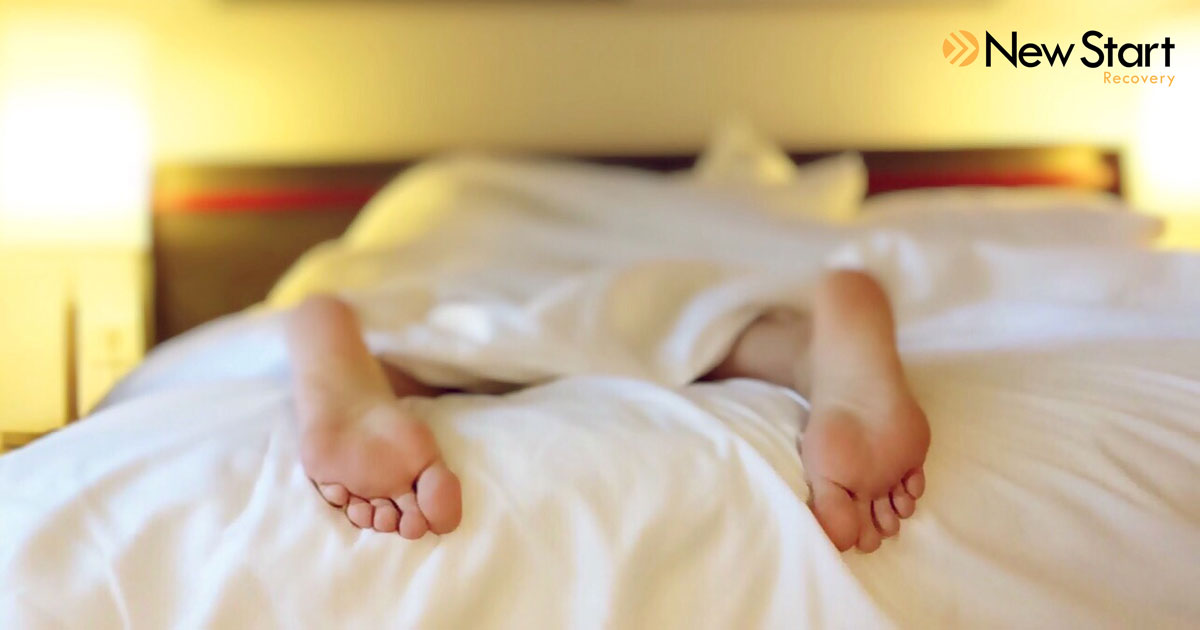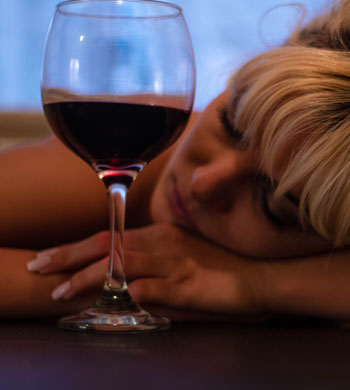No one likes laying in bed for hours, feeling tired but unable to fall asleep. With each hour that passes, the frustration increases as you angrily groan, “Why can’t I fall asleep?!” Soon it’s time to wake up for work and you have yet to catch any sleep. Granted, finding yourself caught in addiction’s vicious grasp, living on the street because all of your rent money goes to chasing the high is worse. What if the two were simultaneous struggles?
They very well can be.

While the end of daylight saving time approaches and everyone looks forward to the extra hour of sleep they get to cash in on, it seems very appropriate to address the connection between sleep (or the lack thereof) and addiction.
Can’t Fall Asleep?: Substance Abuse and Insomnia
Insomnia is a sleep disorder defined as the inability to fall asleep or stay asleep. Not only is the disrupted sleep frustrating, but it can have serious effects on a person’s mental and physical health. Someone who suffers from insomnia is likely to also experience fatigue, low energy, difficulty concentrating, and mood swings.
Acute Insomnia
Acute insomnia is brief. It usually only lasts one night to a couple of weeks. This type of insomnia is generally caused by environmental factors (like noisy neighbors) or life circumstances (like work stress).
Chronic Insomnia
Chronic insomnia lasts at least three nights per week for three or more months. It can be caused by things like other medical conditions, some medications, and substance abuse.
People who struggle with substance abuse are five to ten times more likely to also suffer from a sleep disorder than the general population.
 Those who suffer from sleep disorders like insomnia are prone to self-medicating, whether that means using substances at night to induce sleep or abusing substances during the day to stay awake. Alcohol and benzodiazepines (“benzos”) are common “sleep substances.” Many people will drink before bed to induce sleepiness. We pour that glass or two of wine, tuck ourselves into bed, and call it a “night cap.” Some people use benzos in the same way because of the tranquilizing effects they produce.
Those who suffer from sleep disorders like insomnia are prone to self-medicating, whether that means using substances at night to induce sleep or abusing substances during the day to stay awake. Alcohol and benzodiazepines (“benzos”) are common “sleep substances.” Many people will drink before bed to induce sleepiness. We pour that glass or two of wine, tuck ourselves into bed, and call it a “night cap.” Some people use benzos in the same way because of the tranquilizing effects they produce.
The method already falls under the classification of substance abuse. But it won’t take long before a person feels like they can only fall asleep with help from these substances. That slippery slope leads straight to addiction.
Just as sleep disorders can be a catalyst for substance abuse, substance abuse can cause insomnia.
Alcohol, for example, interferes with the body’s sleep homeostasis, which balances a person’s need for sleep based on the amount of time they’ve been awake. If a person needs sleep, their body will produce adenosine to naturally cause them to feel tired. Using alcohol disrupts that process and pressures the body to fall asleep before it has enough time to naturally induce itself. The act actually shifts the whole sleep period and disrupts sleep quality. If it continues, the episodes of disrupted sleep can turn into chronic insomnia.
Better Sleep Leads to Better Recovery
We’ve all heard that good sleep quality sows a plethora of health benefits. The concept has been drilled since our earliest school days. So it’s not surprising that good sleep quality should make a positive contribution to addiction recovery. The question here is how important is sleep for recovery?
Sleep is a critical risk factor in recovery.
A recent Penn State study conducted to examine the importance of sleep for those in early recovery revealed that getting enough quality sleep positively impacts mood while also reducing cravings. Patients who reported lower sleep quality also reported higher than usual drug cravings. On the other hand, patients who reported better sleep quality and more positive moods experienced lower than usual drug cravings.
Tips for Getting Better Sleep
Unfortunately, the extra hour of sleep gifted by the end of daylight saving time only occurs once a year. These are things you can do every day to help:
Getting better sleep is important, whether you’re a recovering addict or not. But if you’re still struggling in addiction’s lethal grasp, getting better sleep cannot solve the problem. If you or someone you know is struggling with substance abuse, New Start’s addiction counselors are standing by 24/7 to help: 855-737-7363

